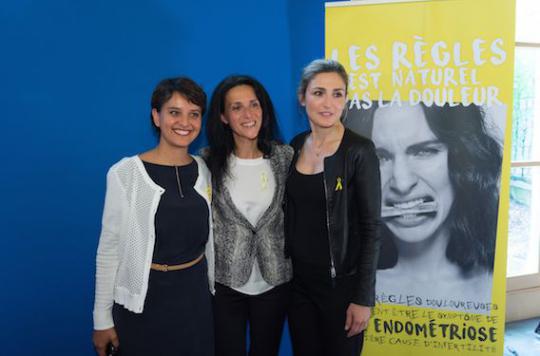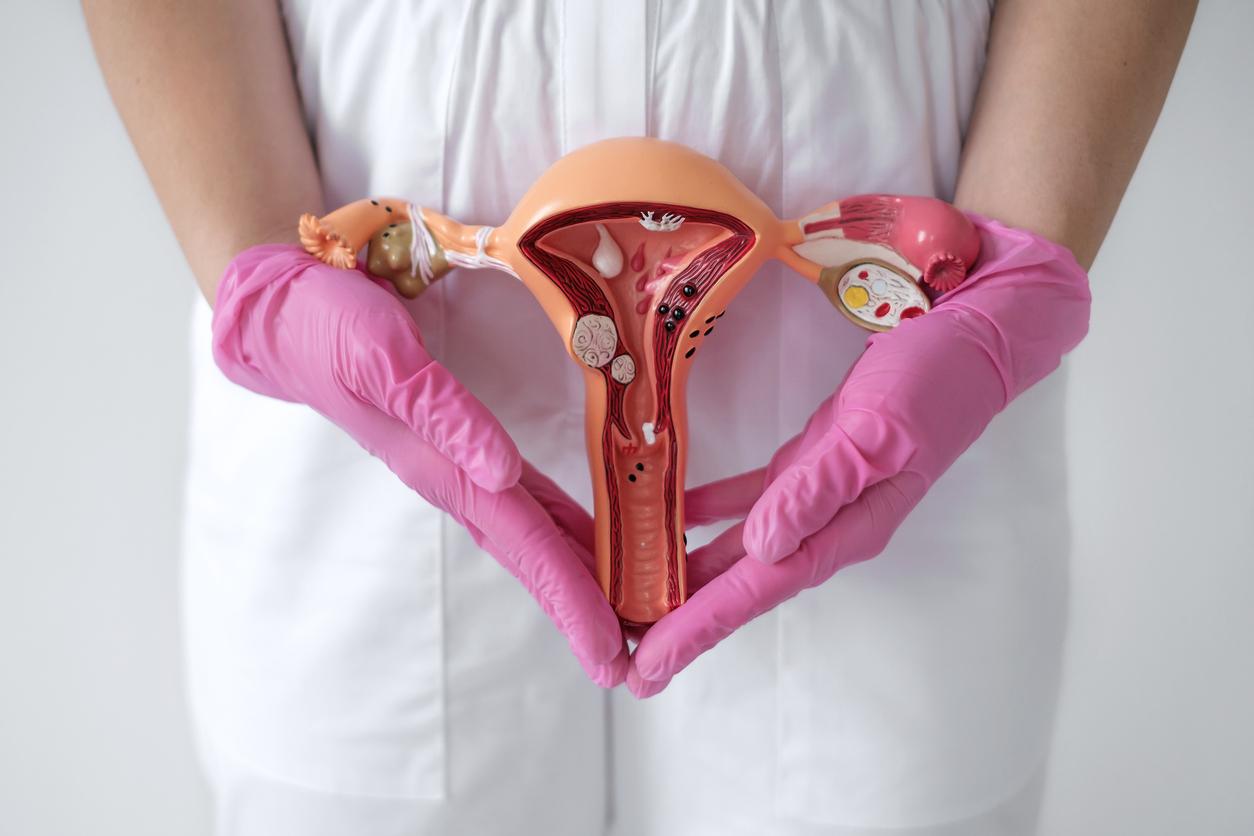One in ten women is affected by endometriosis. But it takes more than 6 years before a diagnosis is made. However, the situation has been changing for three years.

This disease is the leading cause of infertility in France. And yet, endometriosis seems confined to the secrecy of medical consultation. In recent years, the taboo has been lifted. The patient’s speech is gradually released. This year 2017 marks in a way the high point of successive campaigns. For the first time, the French government is associated with it.
This March 6, the Ministry of Families, Children and Women’s Rights signs a partnership agreement with the association Endometriosis Info. The objective is clear: to improve information and raise public awareness about these diseases. This will require easier access to information in all structures intended for women or involved in sexual and reproductive health.
Despite everything, six years elapse on average between the first symptoms and the diagnosis – therefore access to treatment. Too long a delay for these patients who suffer in silence… and who often end up infertile. Because if endometriosis affects one in ten women, the disease is present in 40% of women who cannot conceive.
At the start of the European week of prevention and information on endometriosis, Why actor takes stock with Dr Erick Petit, radiologist at the Saint-Joseph hospital group (Paris). He is the founder of the endometriosis center within the establishment.
Why is the diagnostic wandering so long?
Dr Erick Petit : Two elements are intertwined. First of all, it’s a matter of rules, so we don’t talk about it often. On the other hand, we completely hide the pain. Always, the woman was considered as having to suffer because it is normal. This is the theme of the campaign that began last year.
But in practice, we have always tipped the side of this pain on the psychic side. It also goes hand in hand with the place of women in society for a very long time. This is a fundamental error that has lasted for 4,000 years, even though Greek doctors had already understood that it was an organic disease.
That is why we deny the problem. The other fundamental problem is that since no one is trained, the gynecologist will ask for a weary war exam. Nobody finds anything and we fall back into denying the problem, until we finally listen to the complaint.
What are the concrete solutions for treating patients?
Dr Erick Petit : There are two solutions. The first is fundamental and consists in stopping the disease by stopping the rules. You stop the flow that flows back through the tubes and floods the lower abdomen, causing the symptoms. But that’s not always enough. Sometimes it is necessary to operate, depending on the severity of the disease. Because the second problem, in the long term, is that the later you intervene, the greater the risk for fertility.
The third step in the treatment is pain relieving techniques. In endometriotic disease, the pain is complicated, multifactorial. It is not because we abolish the rules and that we operate that all the pains improve. It is a chronic disease that begins with the first period and lasts until menopause.

What will the agreement signed with Laurence Rossignol change?
Dr Erick Petit : It is important to sensitize young girls from middle school, because from the moment you miss classes because of painful periods, it is endometriosis. It must therefore be detected. Thanks to patient associations, for more than ten years, there has been an awareness of the problem. It has been felt in the medical profession for three years in particular. In my case, I observe that two thirds of the patients come by themselves because they are informed. They know they have the disease even before the doctors. All you have to do is affirm it and take charge of it.
Many more women are consulting now and earlier. For now, the figures hover between 7-9 years of diagnostic delay. But it will go down in the years to come, because more and more doctors realize that they have missed a disease. Everyone is in the field, general practitioners, emergency doctors … For three years, things have progressed spectacularly. We are witnessing a turning point.
.
















